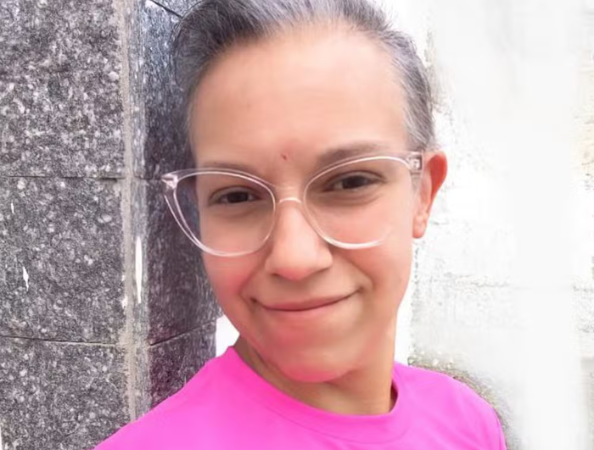A woman was diagnosed with breast cancer that had spread to her lungs, but her decision saved her life: 'They gave me a year to live. It's been 14 now.'

In 2010, seamstress Jocy Silva , then 27 years old and with a nursing daughter, was diagnosed with breast cancer that had spread to the lung.
In the midst of the shock, her doctor suggested she participate in a treatment program with a new drug combination, a combination of chemotherapy and targeted therapy . Although she didn't know it was a clinical trial, she agreed.
The treatment (as explained by his doctor) would not be covered by the SUS (Unified Health System), but it would not have any cost either.
Despite her initial fear, Jocy recalls that three years later the nodules had virtually disappeared . Her perception of clinical research changed radically.
"If the doctor had said 'clinical research' at the beginning, I might have refused out of ignorance. I thought I'd be a lab rat. But it was the best opportunity of my life," she says.

Jocy had lung metastases when she unknowingly accepted an experimental treatment. Photo: Social Media
Professor Francisca Iraci had a similar experience when she was diagnosed with breast cancer in 2011. In 2013, the disease reappeared in her bones, and her doctor informed her about the possibility of accessing a drug not yet approved in Brazil. She agreed to join the experimental protocol.
"At the time, they gave me a year to live. It's been 14 now," Francisca says.
She faced initial resistance from her husband, but over time, the results of the treatment proved its effectiveness.
"When the doctor offered me the research, my husband opposed my participation. He said I'd be a guinea pig. Today he agrees that if I hadn't had this opportunity, I wouldn't be here. My cancer has been stable for 14 years, and with treatment, I'm living the life I like: dancing forró for hours, traveling, and enjoying life," says Francisca.

4. Francisca was diagnosed in 2011 and then had bone metastasis in 2013. Photo: Social Media
She was one of the first patients in Brazil to receive combination therapy with trastuzumab and pertuzumab. The drug was approved in the country two years later and incorporated into the SUS (National Health System) in 2019, although its availability is still limited.
Oncologist Felipe Cruz, a researcher at the Brazilian Institute for Cancer Control (IBCC), who is treating Francisca, recalls the condition she was in at the start of treatment:
"When she came to the clinic with the onset of bone metastasis, she was in a lot of pain and had already lost a lot of weight. With treatment, we controlled the progression of the tumor and her symptoms. Today, she lives well, dances, and travels, as she has for 14 years," she says.

Participating in clinical trials was key to changing the course of their terminal diagnoses. Photo: istock
Clinical trials follow international protocols and are overseen by independent committees. In many cases, they represent the only way to access innovative therapies, especially for people without health insurance.
Jocy and Francisca's stories reflect how participation in clinical trials, in controlled settings with medical support, can offer real alternatives for patients with complex diagnoses, even when the initial prognosis is limited.
More news in EL TIEMPO *This content was rewritten with the assistance of artificial intelligence, based on information from O Globo, and reviewed by a journalist and an editor.
eltiempo





